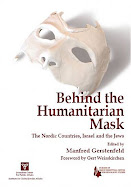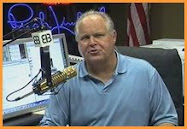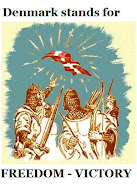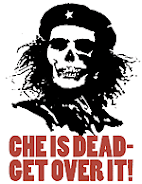That statement is true indeed - No matter what time and age controlled economy has resulted in chatastrophies, slaughters and utter failures.
From Times Online
When I consider the question of whether the free market corrodes moral character, I am forced to think very carefully. It is clear that the ferocious competition of interests and passions, the mad rule of money, and materialism as the measure of all things – in short, the free market, released from all rules and governed only by the greed of the most powerful – fatally corrodes our souls. This is what the great Aleksandr Solzhenitsyn thought at the end of his life.
This view was shared by the family of French thinkers of the 1930s called the “nonconformists”, which included Charles Péguy and a few others. They saw commodity exchange as a source of depersonalisation. It was also the thesis of an entire group of Christian (or simply spiritualist) thinkers who saw in the idea of the “free market” the death of moral values and the end of man’s faith and aspiration to the absolute.
It was also – and this should put us on alert – one of the main themes of fascism and one of the reasons the masses were seduced by it. “Stop materialism!” it was proclaimed. “Put an end to destructive individualism and the social atomisation against which fascism presents its good, safe, organic and natural communities!”
In short, watch out for the rule of “generalised equivalence” among human values (another term for the “market”), which the fascisms of every age have found anathema.
Well, the problem is actually more complicated than it seems. We cannot – we must not – declare, as if it were a definitive truth, that the market simply and only corrupts. Three corollaries must be added to this seemingly obvious common-sense contention. First, if the market corrupts, the various negations of the market corrupt absolutely. Look at fascism. And look at that other hatred of the market that preceded and followed it: communism. I doubt that anyone would posit communism as the fulfilment of character and soul for its victims or agents.
Second, if these corruptions must be ranked, it is patently obvious that the communist or the fascist corruption through the negation of the market is significantly deeper, deadlier and more irreparable than the first. That was obvious for fascism from the start and it eventually became obvious for communism too. I think back to the long journey I made through central and eastern Europe just after the fall of the Berlin Wall. I can still hear my Czech, Polish, Bulgarian,  Hungarian and East German friends explaining to me that the communist era, those long decades in a society not at all governed by the rules of the market, had caused them, in their hearts and souls, to develop a certain number of vices, even defects – and that they themselves did not know how long it would take to get rid of them.
Hungarian and East German friends explaining to me that the communist era, those long decades in a society not at all governed by the rules of the market, had caused them, in their hearts and souls, to develop a certain number of vices, even defects – and that they themselves did not know how long it would take to get rid of them.
Consider, for example, the habit of acting irresponsibly – that is, the inability to take risks, even to make decisions. I vividly recall an East German engineer who seemed perfectly normal, a democrat in her soul and a dissident for years, but who burst into tears the day I asked her to lay out the itinerary for the day we would be spending together. “They taught me not to decide,” she said, between sobs. “It is like an amputation, an excision, as if they physically came in and corroded a section of my brain.” Imagine a deep selfishness with neither nuance nor recourse, much more radical than the self-interest of market societies. From the viewpoint of those who survived, that is the true balance sheet of communism. These are the proofs of corruption, of a corrosion of character, brought about by the actual absence of a free market.
Finally, a third corollary: because the free market develops the qualities of taking initiative and making decisions, because it places individuals into relationships with each other, because it is a regime that makes sense only if its subjects relate to one another, the free market remains a factor promoting socialisation, a means of connecting human beings, even of creating fraternity or, in any case, mutual recognition. Hence, it is the opposite of corruption. We should read Emmanuel Levinas on the question of money. He argued that, far from isolating and atomising individuals, money is, in fact, the medium of their interchange. And so it is necessary to conclude that there are good uses for the market, since it is one of the means that human beings have found to resist the all-out war of everyone against everyone else, diagnosed first by Hobbes and then by Freud.
Does the free market corrode moral character? Well, undoubtedly no. It even reinforces our moral defences, giving us the capacity to say no and to disagree. Naturally, this is on the condition that we willingly submit to the rules and refuse the temptation of the jungle and of untamed capitalism. The market, to borrow Winston Churchill’s famous phrase about democracy, is the worst solution, except for all the others.
































No comments:
Post a Comment